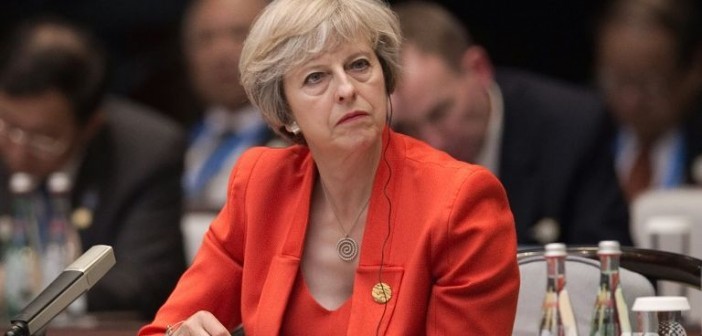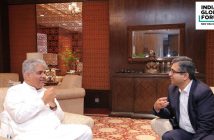Days before Theresa May lands in India for her visit as British Prime Minister, India Inc. CEO Manoj Ladwa flags up some very crucial questions she must answer.
British Prime Minister Theresa May has chosen New Delhi as the first foreign capital she will visit outside Europe since taking office in July. Coming as it does, at a time of great international uncertainty. The US presidential elections seem to be going down to the wire, the West’s ties with Russia are hitting new lows every other day and the British government has signalled its intentions of forging closer ties with a rising China, as evidenced from May’s green signal, after some initial hesitation, to the £18-billion Hinkley Point nuclear power plant that will be built by French firm EDF and Chinese state-owned behemoth CGN.
In this scenario, with India’s “friend” Barack Obama scheduled to demit office soon, and the post-Brexit uncertainty of London remaining India’s bridge to the European Union (EU) and China upping the ante by saying it is ready to sign an FTA with the UK, and demanding 100 direct weekly flights to the UK up from 40 at present, New Delhi is watching May’s every move and analysing every nuance for pointers to what she has in mind for UK’s ties with India, which seemed to be on auto-pilot under her predecessor David Cameron.
Prime Minister Narendra Modi had publicly supported the UK remaining in the EU in the interests of regional stability. With the two EU powerhouses, France and Germany, showing a willingness to do one-on-one deals with New Delhi, Modi is in the happy position of being able to cherry pick collaborations in a divided Europe.
But the UK and India have always enjoyed a special relationship that goes beyond the hard numbers. There was euphoria about an early conclusion of an India-UK FTA in the immediate post-Brexit. That has now subsided but both sides understand that closer India-UK ties can not only boost the bilateral economic and strategic paradigm but also help reshape the new emerging global order.
For these reasons, May cannot afford a pedestrian visit to India. Indians will be listening carefully to her every word, and the world watching her every move. Her demeanour, especially with Modi – as huge emphasis in India is placed on personal rapport – will give an indication of her future approach and direction. But optics alone cannot and will not do. There needs to be substance on the bone. But as a prominent British journalist in New Delhi told me this week: “All we are seeing so far is bones.”
In all fairness, we need to give her space to allow her to articulate her vision. She, however, would do well not to draw a line over the past and try to re-write the rule book as she has done to some surprise in the UK over her predecessors’ legacy, at least on domestic matters. In comparison, Cameron, and indeed, every PM since John Major, has built and moved rapidly from the post-imperialist legacy to a relationship of genuine partnership.![]() Some of her decisions have raised eyebrows in India. In public pronouncements as well as in private conversations, Indian leaders want some clarity on the following issues:
Some of her decisions have raised eyebrows in India. In public pronouncements as well as in private conversations, Indian leaders want some clarity on the following issues:
- Why is UK pulling up the drawbridge for Indian talent?
The Indian government has sought a review of the decision to levy higher visa fees on Indian students, the clampdown on issuing post-education work permits and tougher entry norms for Indian professionals, which make it difficult for Indian employers to transfer personnel from India to the UK. Given her earlier hardline stance on the issue as home secretary, will she be willing to oblige? - Then, given that the euphoria of an immediate improvement in trade ties following the Brexit vote has subsided, how realistic are hopes for an early FTA between the UK and India?
- Many Indian companies that had invested in the UK (and London, in particular) as a gateway to the EU are now worried that their plans could be in disarray. What is May’s message to such investors?
- The official UK reaction to the petition to condemn Pakistan for sponsoring terrorist groups has disappointed many Indians. What, they ask, is May’s stand on Pakistan’s well publicised use of terrorists as instruments of state policy?
- In a break from recent convention, May’s delegation will not include any representative of Big Business from the UK. Instead, she will be accompanied by executives from the MSME sector. The official explanation is that the visit will enhance cooperation between smaller companies that form the backbone of both the economies.
But, some Indian analysts are asking, is the absence of Big Business a sign that large British companies are unwilling to make international commitments till they get some clarity on where they stand in a post-Brexit world?
Some of these questions are disturbing for those who see the UK and India as natural allies.
The world is keenly waiting for May’s answers.







